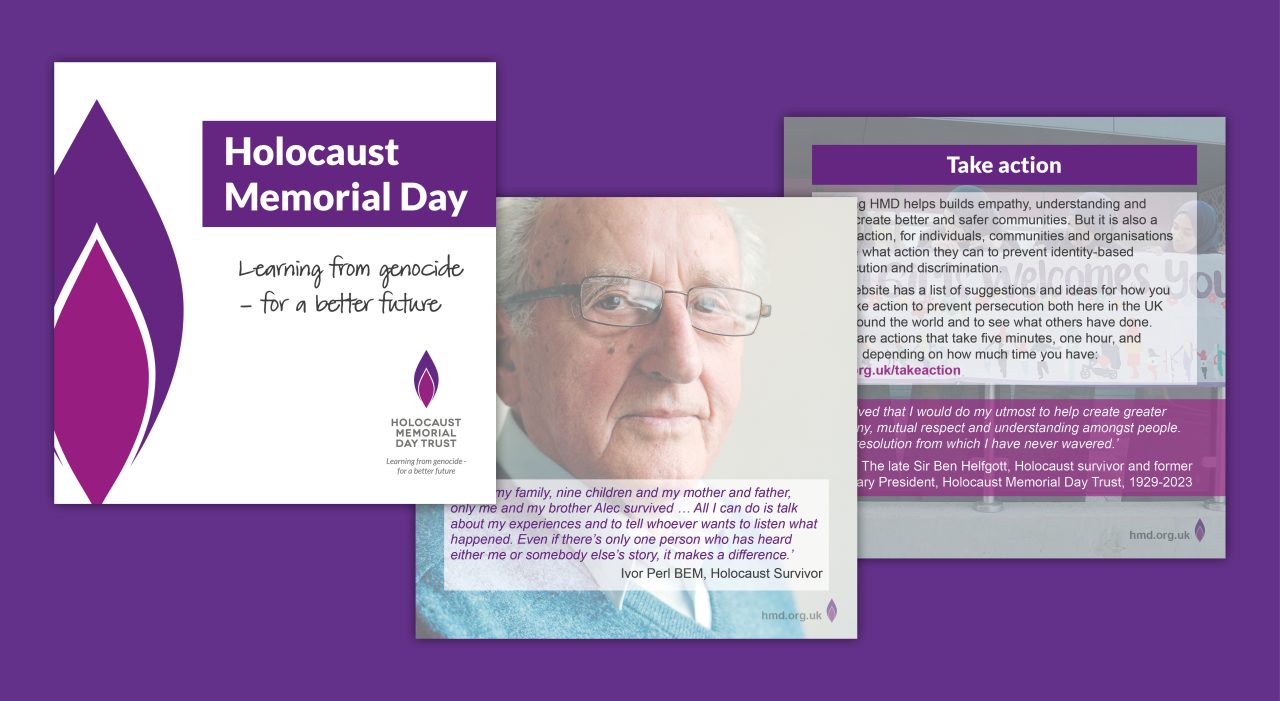
Order resources
Order resources to use in your Holocaust Memorial Day (HMD) activity.
Our resources can help you learn more about the Holocaust and genocide and plan your own HMD activity. Explore life stories of survivors and those who were murdered, virtual activities, schools materials, films, images and more. You can filter them by genocide and type of resource.

Order resources to use in your Holocaust Memorial Day (HMD) activity.
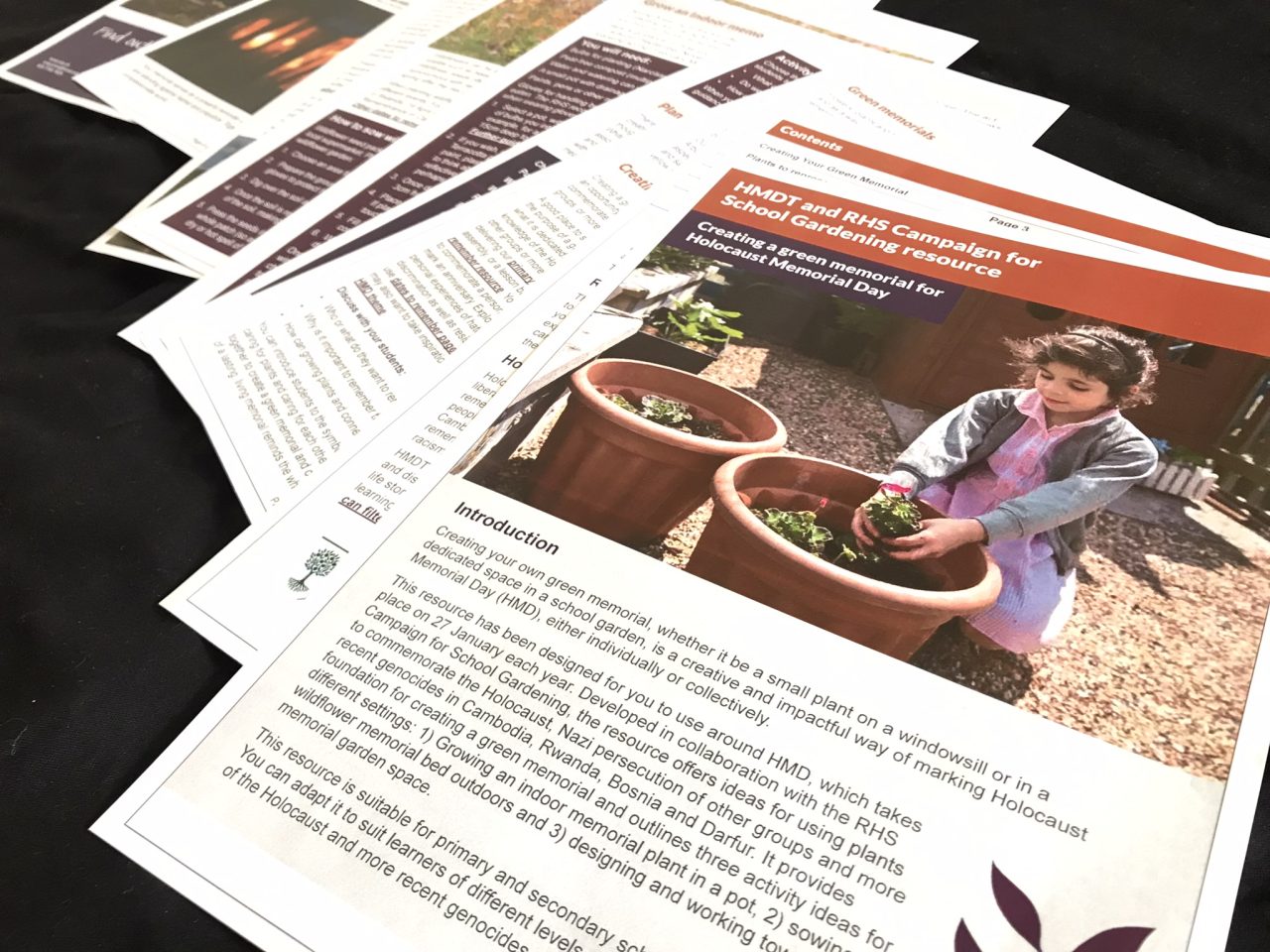
This resource, developed in collaboration with the Royal Horticultural Society (RHS) Campaign for School Gardening, offers ideas for primary and secondary school students to use plants to commemorate the Holocaust, Nazi persecution of other groups and more recent genocides in Cambodia, Rwanda, Bosnia and Darfur.
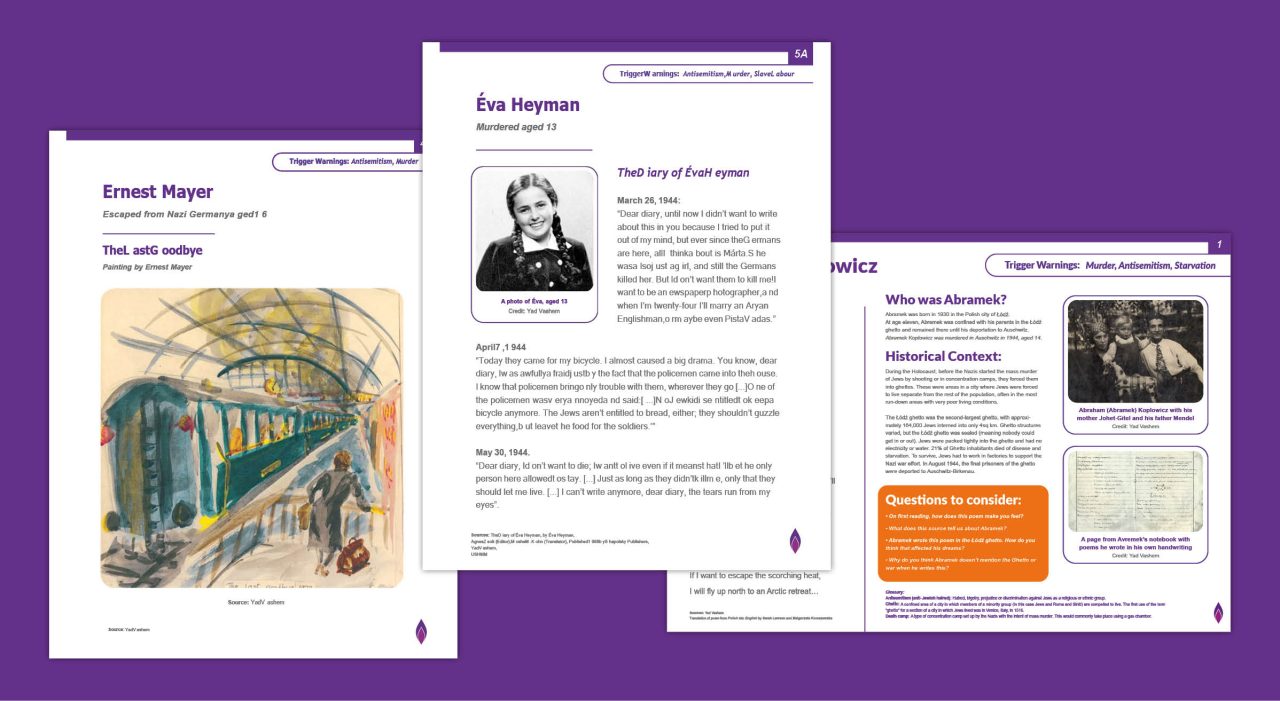
These resources explore the lives of 12 young people who experienced Nazi persecution because of who they were. The contents of these resources contain firsthand accounts, historical context and questions to be considered. The questions can be used to lead engaging and thoughtful discussions around the experiences of these young people.
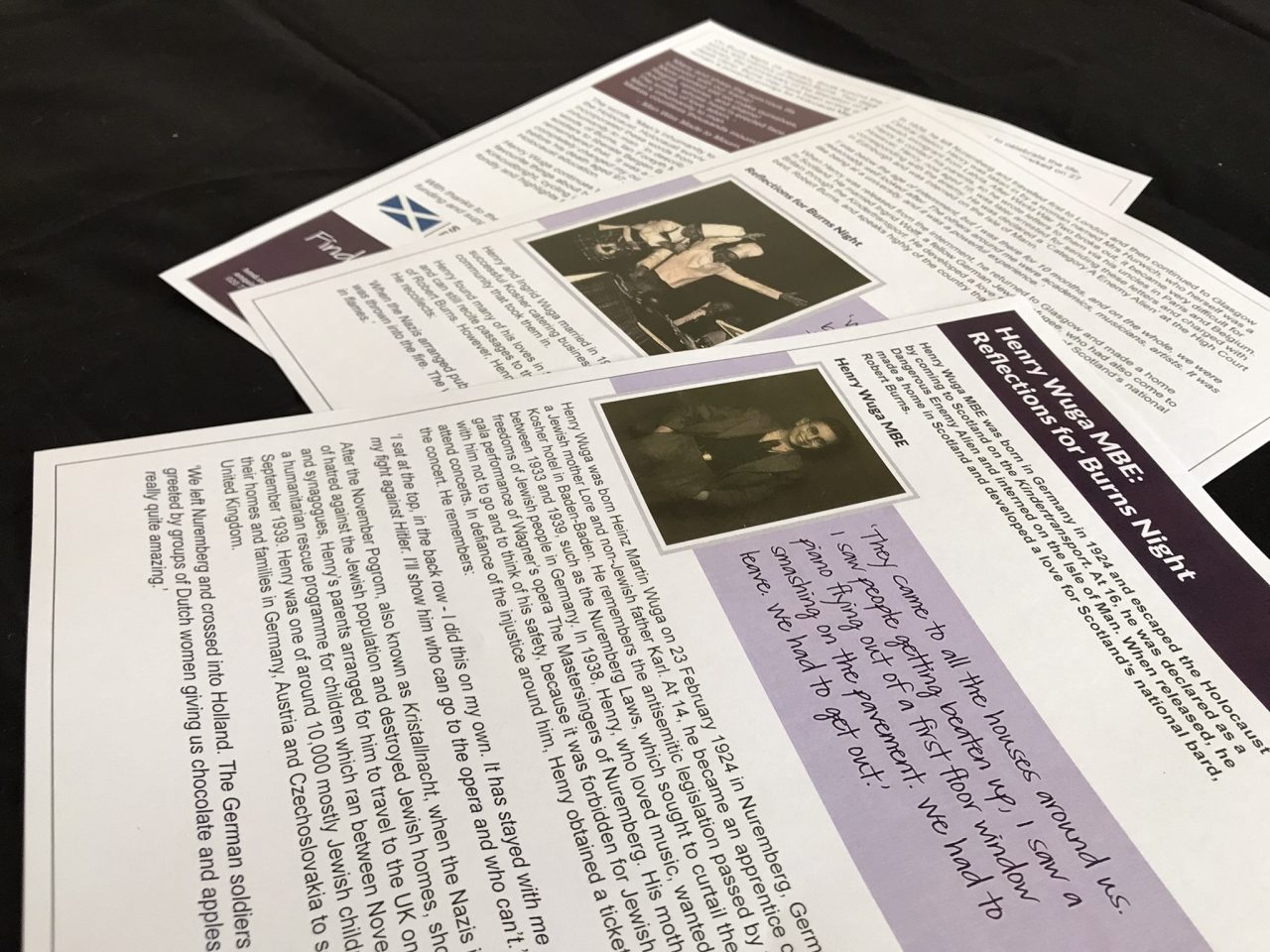
This resource is designed for Scottish secondary schools to mark HMD while supporting and complementing Burns Night celebrations. Read the story of Henry Wuga MBE who was born in Germany in 1924 and escaped the Holocaust by coming to Scotland on the Kindertransport. He made a home in Scotland and developed a love for Scotland's national bard Robert Burns.
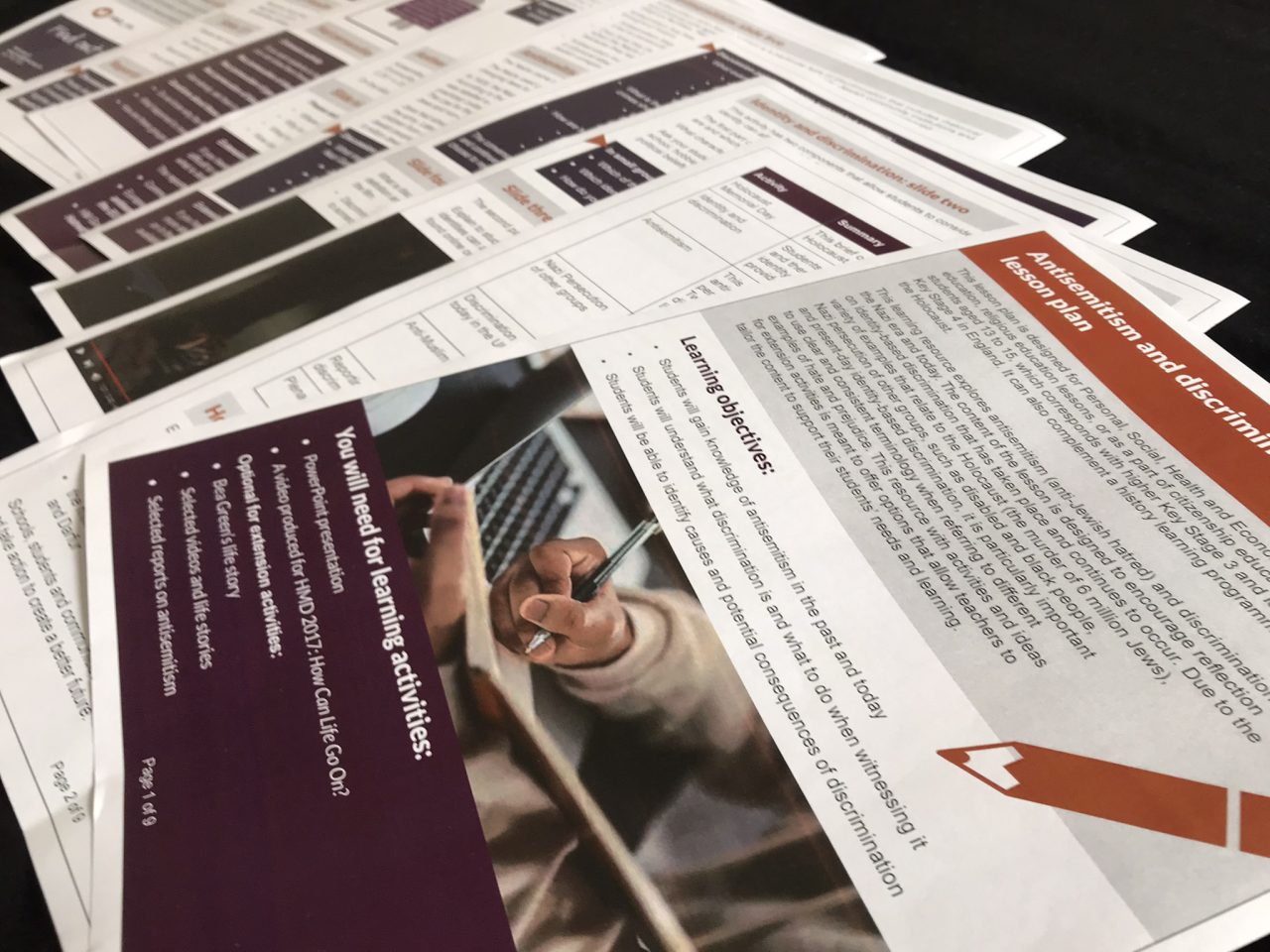
This learning resource explores antisemitism (anti-Jewish hatred) and discrimination during the Nazi era and today. The content of the lesson is designed to encourage reflection on identity-based discrimination that has taken place and continues to occur.
![[Extra]Ordinary Portraits – A resource](https://www.hmd.org.uk/wp-content/uploads/2023/09/WhatsApp-Image-2022-09-23-at-12.11.46-PM-4.jpeg)
This resource supports teachers and youth leaders in engaging young people to explore experiences of persecution and discrimination through art.
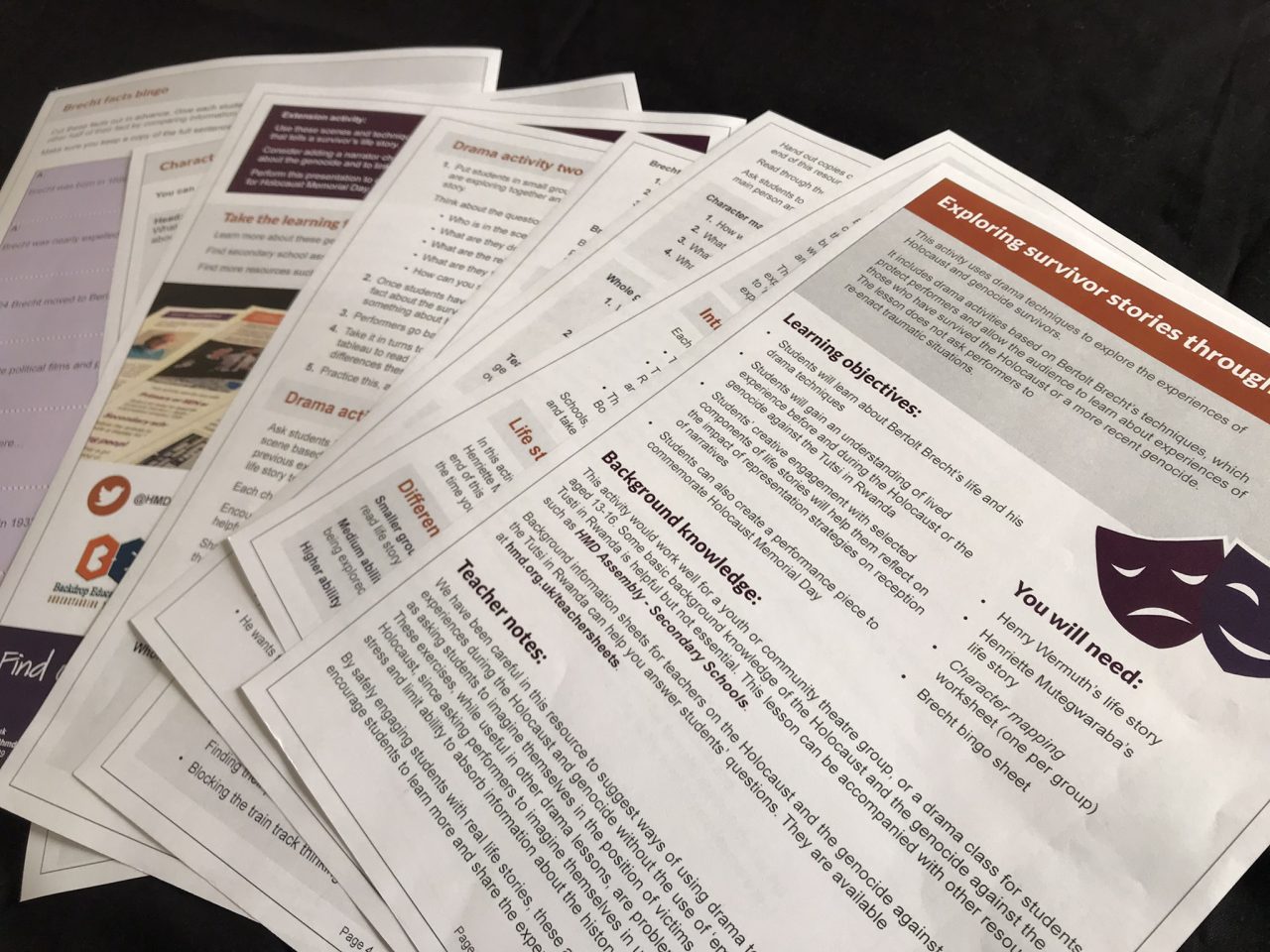
This lesson for secondary school students aged 13–16 or a youth theatre group uses drama techniques to explore the life stories of people who survived the Holocaust and the Genocide against the Tutsi in Rwanda. It includes drama activities based on Bertolt Brecht’s techniques, which protect the performers and allow the audience to learn about those who survived the Holocaust and a more recent genocide.
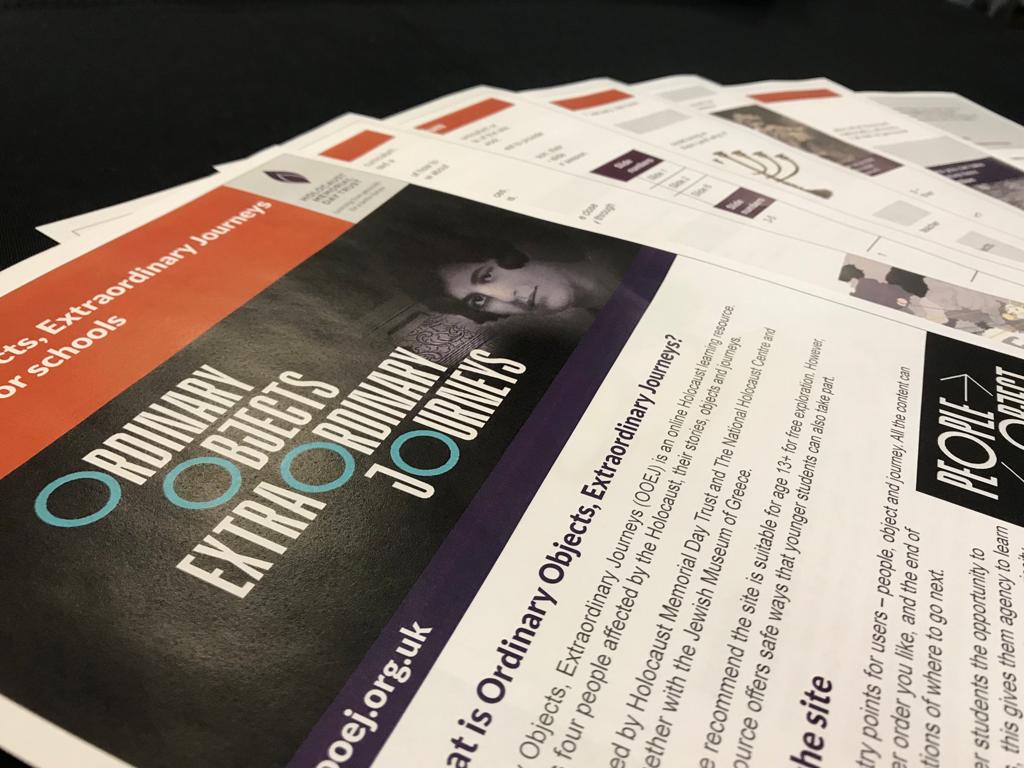
This resource supports secondary school teachers to use the new interactive Holocaust education website Ordinary Objects Extraordinary Journeys in the classroom.
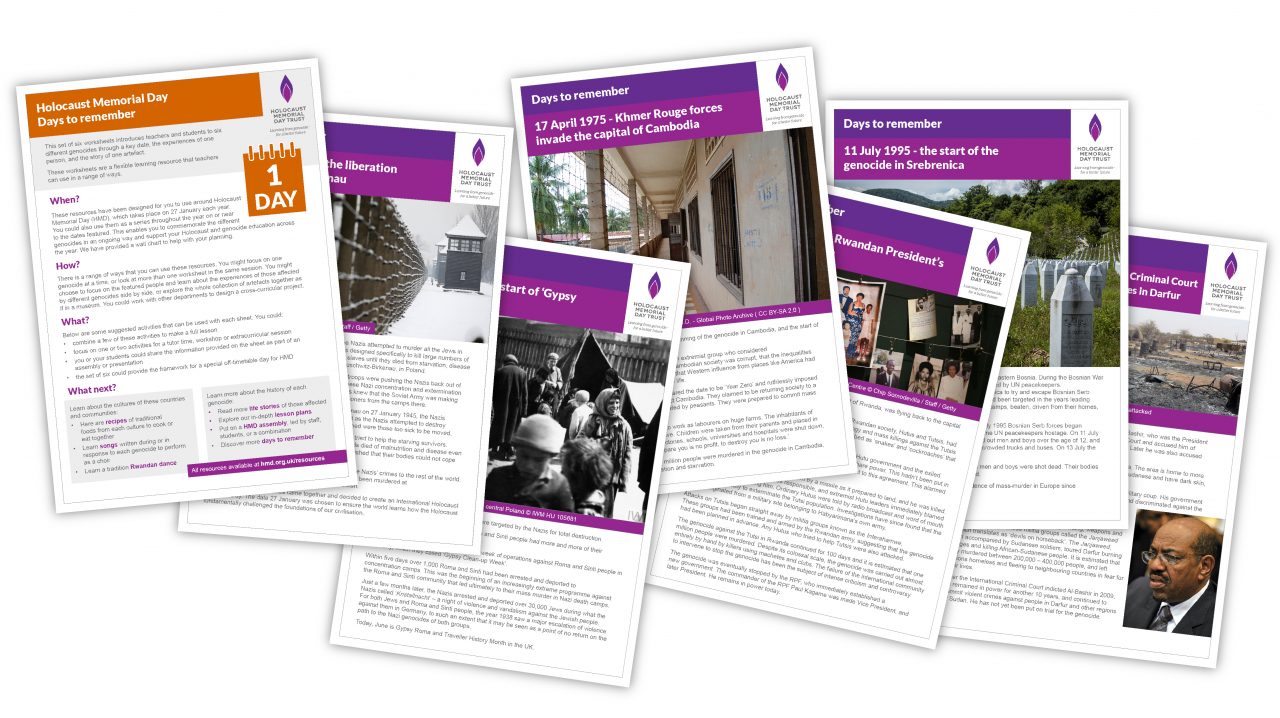
This set of six worksheets introduces secondary school teachers and students to six different genocides through a key date, the experiences of one person, and the story of one artefact. It can also be used in a non-school environment.
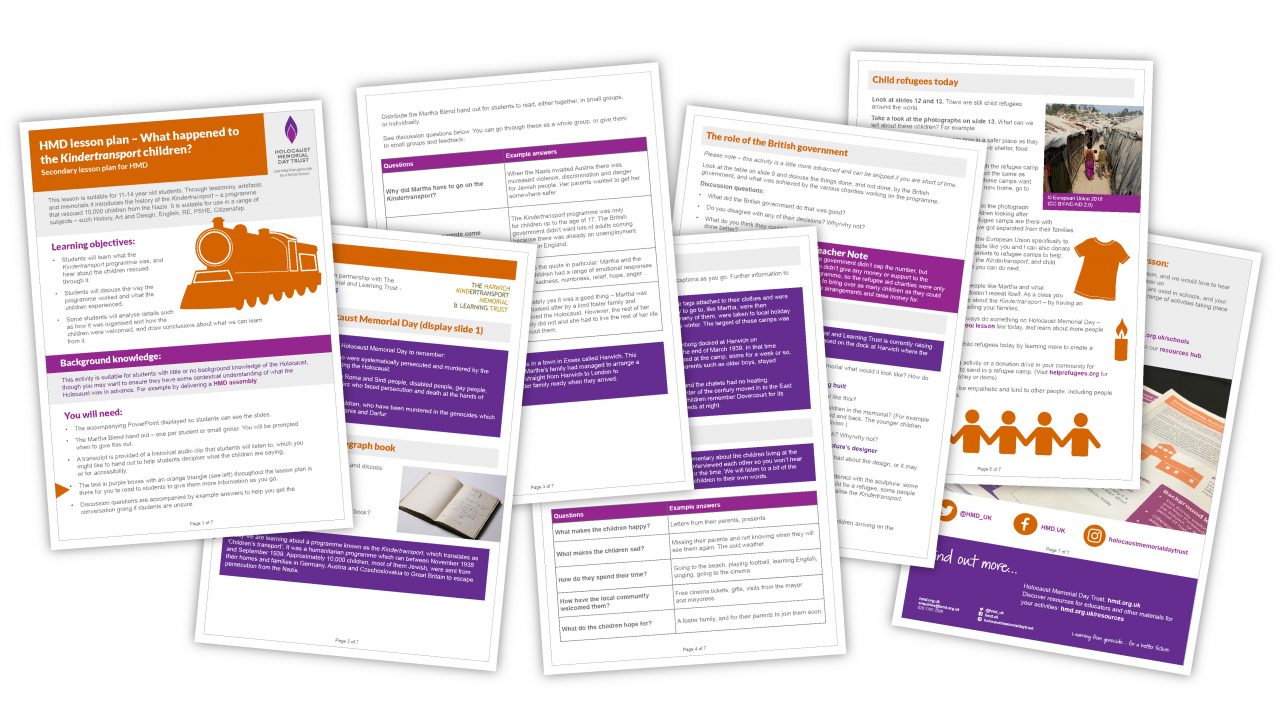
This lesson is suitable for 11–14-year-old students. Through testimony, artefacts and memorials it introduces the history of the Kindertransport – a programme that rescued 10,000 children from the Nazis. It is suitable for use in a range of subjects – such as History, Art and Design, English, RE, PSHE, Citizenship.